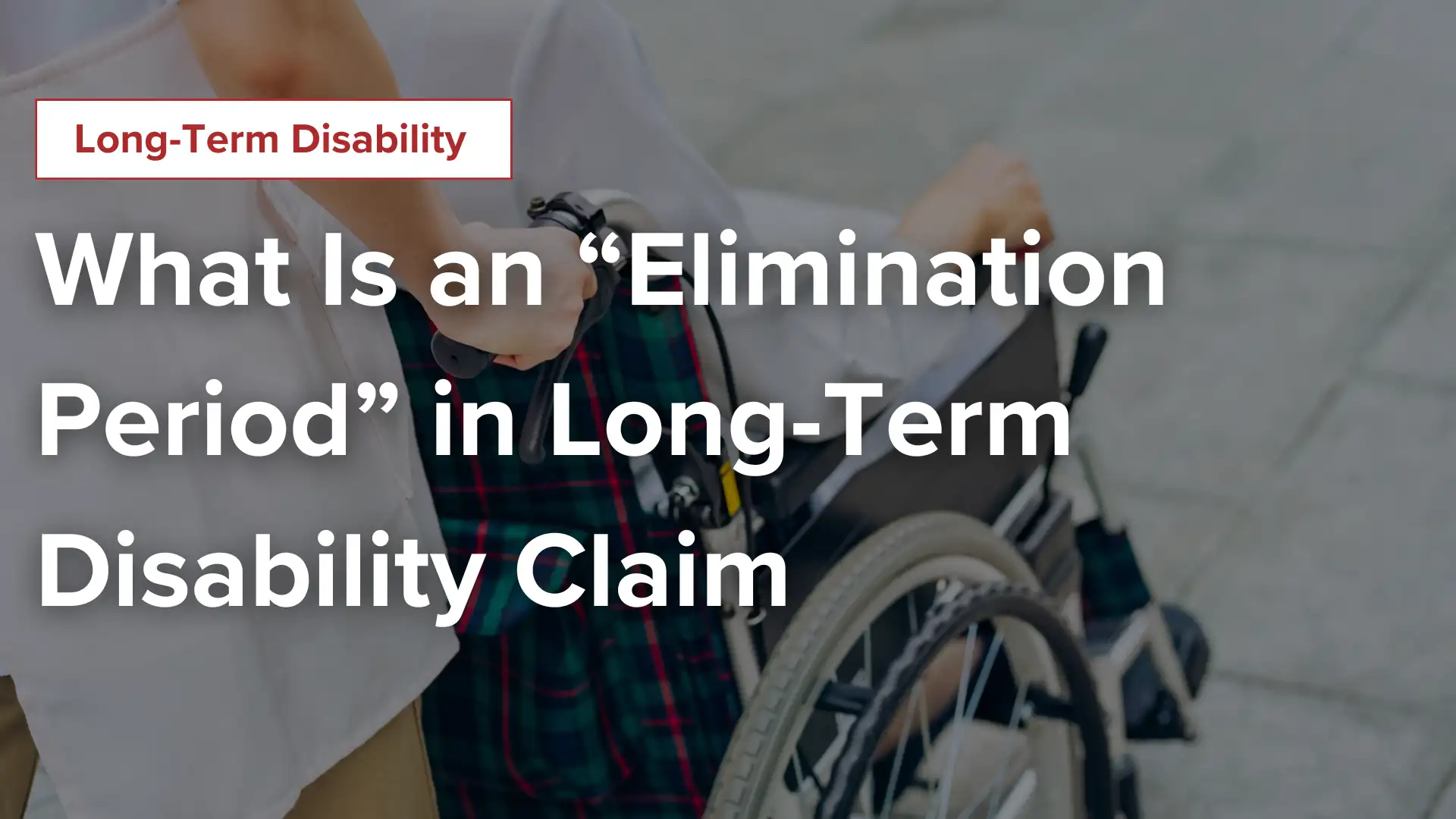Posted on Monday, September 22nd, 2025 at 9:00 am

Filing a long-term disability (LTD) claim involves more than just submitting medical records. Insurance companies rely on built-in rules and timelines that determine when your benefits actually begin. One of the most important of these rules is the elimination period. If you do not understand how it works, you may face unexpected gaps in coverage or delays that affect your financial stability.
What Is an Elimination Period in Long-Term Disability?
When filing a long-term disability (LTD) claim, one of the first hurdles you encounter is the elimination period that long-term disability Philadelphia claimants must complete. This period, sometimes called the “waiting period” or “qualifying period,” is the time between your disability’s onset and the date you start receiving benefits.
Insurance companies include elimination periods in every disability insurance policy. The idea is to prevent short-term illnesses or minor injuries from triggering LTD payments. While the waiting period varies, most policies require a waiting period of between 90 and 180 days. During this time, you must show proof of continuous disability and an inability to return to work.
Understanding the elimination period is vital, as it impacts when benefits begin, how much coverage you actually receive, and whether you need financial support to bridge the gap.
How Does the Elimination Period Work?
An elimination period is the waiting time before you can start receiving long-term disability (LTD) benefits. Your policy decides how long this period lasts. It begins on the first day you cannot do your job because of illness or injury. Even if you delay filing your paperwork, the countdown still starts on that first missed day of work.
You must show you are disabled under your policy by keeping medical records, following treatment, and proving lost income. Going back to work too soon can restart the waiting period.
Since elimination periods often last several months, workers need ways to cover expenses while they wait. Many use short-term disability benefits or sick leave through their jobs. Some companies create group policies that provide short-term benefits as a bridge until long-term benefits take effect. Other workers buy private disability insurance for extra protection.
Planning ahead is important because the elimination period can be a stressful time. Savings or support during this gap can reduce hardship.
Can the Elimination Period Delay or Deny My Benefits?
Yes, the elimination period can change when you get benefits, and if you get them at all. If your medical records do not clearly show you were disabled the whole time, the insurance company might say no. Missing doctor visits, gaps in care, or sloppy paperwork can all cause problems with your claim.
Another challenge arises when policies require you to exhaust all available paid leave or short-term disability before LTD eligibility begins. In these cases, employees may feel like they are waiting longer than their policy states.
Residual disability provisions also matter. Some policies allow you to work part-time if you remain impaired, while others require total disability during the waiting period. Misunderstanding these distinctions can delay your LTD benefit eligibility.
The elimination period functions as a built-in safeguard for insurers. However, it can also become a significant obstacle for employees who cannot afford to be without income for an extended period. If your claim gets denied because of alleged noncompliance during this time, you have the right to appeal. Working with a disability attorney can help protect your benefits and clarify confusing insurance terms.
Why Understanding Elimination Periods Matters

Knowing the details of your elimination period helps you make informed financial decisions. It prepares you for the benefit trigger date, when payments officially begin. It also clarifies whether you need a short-term disability bridge or other support during the waiting phase.
Without this understanding, many workers in Philadelphia experience unnecessary stress. They may assume their LTD coverage starts immediately, only to find themselves stuck in a months-long coverage gap without income. By reviewing your disability insurance policy carefully and asking questions, you can avoid costly surprises.
Get Help With Your Long-Term Disability Claim
The elimination period in long-term disability claims can create real challenges for workers in Philadelphia. Preparing early and understanding your policy can help reduce stress, but disputes and delays still occur. If your insurance company questions your eligibility or denies benefits, you do not have to face it alone.
An experienced disability attorney can protect your rights and strengthen your case. For help with your LTD claim, call Capitan Law at (267) 419-7888 today.